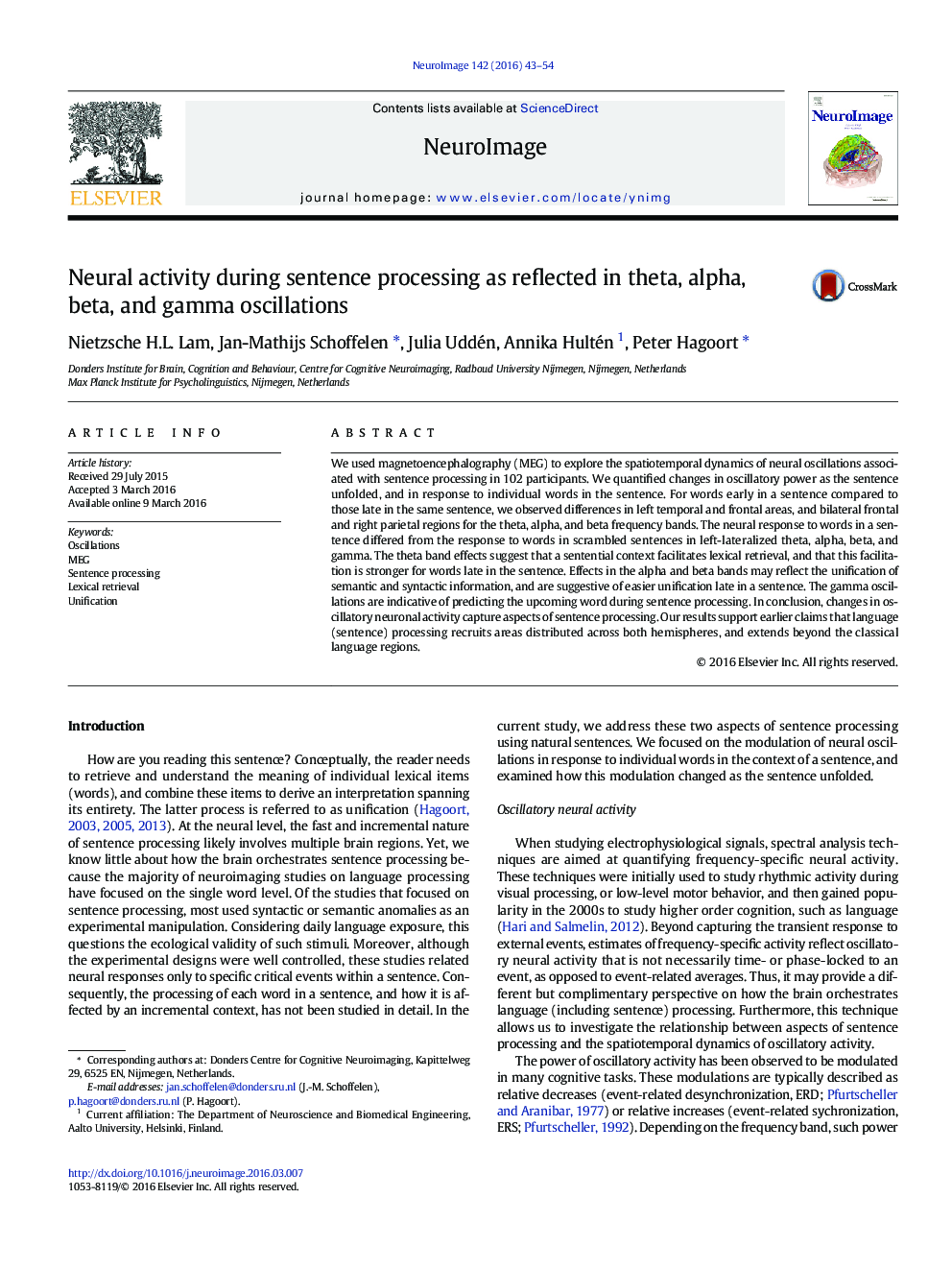| Article ID | Journal | Published Year | Pages | File Type |
|---|---|---|---|---|
| 5631418 | NeuroImage | 2016 | 12 Pages |
â¢Words in a sentence induce left-lateralized oscillatory responses at θ, α, β, and γ.â¢Unfolding sentence context modulates θ, α, and β oscillations in both hemispheres.â¢Oscillations source-localize to regions in line with earlier fMRI and M/EEG studies.â¢Effects suggest lexical retrieval, unification, attention, and prediction processes.
We used magnetoencephalography (MEG) to explore the spatiotemporal dynamics of neural oscillations associated with sentence processing in 102 participants. We quantified changes in oscillatory power as the sentence unfolded, and in response to individual words in the sentence. For words early in a sentence compared to those late in the same sentence, we observed differences in left temporal and frontal areas, and bilateral frontal and right parietal regions for the theta, alpha, and beta frequency bands. The neural response to words in a sentence differed from the response to words in scrambled sentences in left-lateralized theta, alpha, beta, and gamma. The theta band effects suggest that a sentential context facilitates lexical retrieval, and that this facilitation is stronger for words late in the sentence. Effects in the alpha and beta bands may reflect the unification of semantic and syntactic information, and are suggestive of easier unification late in a sentence. The gamma oscillations are indicative of predicting the upcoming word during sentence processing. In conclusion, changes in oscillatory neuronal activity capture aspects of sentence processing. Our results support earlier claims that language (sentence) processing recruits areas distributed across both hemispheres, and extends beyond the classical language regions.
